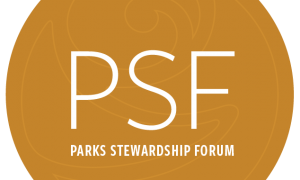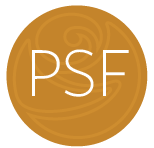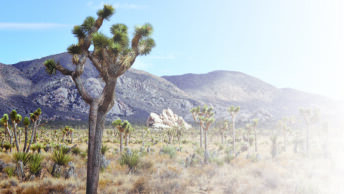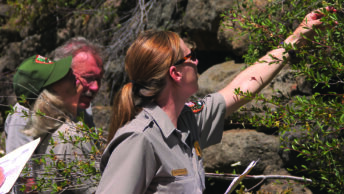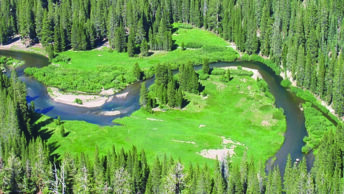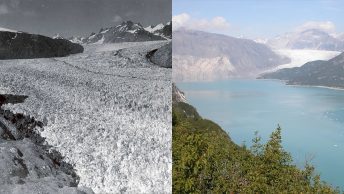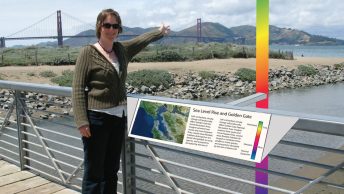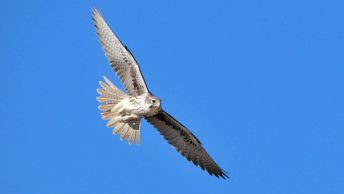Michael Chang, Haley Kennard, Laura Nelson; with contributors: Katie Wrubel, Seraphina Gagnon, Rebekah Monette, Janine Ledford
[Ed. note: This article originated as a presentation at the US/ICOMOS (US Committee of the International Council on Monuments and Sites) International Symposium “Forward Together: A Culture–Nature Journey Toward More Effective Conservation in a Changing World,” held in November 2018 at The Presidio, San Francisco, California, USA. The symposium explored the understanding that cultural and natural heritage are dynamic and inextricably linked in many landscapes and waterscapes, and that effective and long-lasting conservation of these places depends on better integration of the “entangled dimensions” of culture and nature. The article is republished with permission from US/ICOMOS and the author. The complete symposium proceedings are available at https://usicomos.org/past-symposia/.
Abstract
Since time immemorial, Qwidiččaʔa•tx̌, or the Makah Tribe, have lived on the northwest Olympic Peninsula in what is currently Washington state. Climate change has already impacted the Makah Tribe and will continue to do so in the future. Our history, archaeological archives, stories, and knowledge have proven that the Makah Tribe has an extensive history of adapting to changing climates. Traditional, cultural, and Indigenous knowledges can play an important role in climate adaptation planning, and for tribes and Indigenous peoples it can be a crucial component in ensuring that planning strategies and outcomes are culturally appropriate and aligned with community values. The Makah Climate Change Workgroup, an internal workgroup of the Makah Tribe, has begun a Makah Traditional Knowledge and Cultural Resource Assessment to complement and inform our Makah Climate Impacts Assessment and Makah Climate Adaptation Plan. In this presentation, we outline our preliminary framework demonstrating how tribes and Indigenous groups can utilize traditional and Indigenous knowledges within their own planning processes in the following ways: to (1) provide historical baselines and fill in gaps in monitoring data; (2) identify cultural resources that are vulnerable to future climate change; (3) identify potential climate adaptation and mitigation strategies; and (4) engage the community on climate change impacts.
Keywords: climate adaptation; traditional knowledge; cultural resources; community-based process; climate change planning
Introduction
For many Indigenous communities, culture and nature are synonymous. Place-based Indigenous communities are often dependent on natural resources. Ensuring that cultural and natural resources are present for future generations is critical for many Indigenous cultures and economies to survive (Wildcat 2013; Donatuto et al. 2016; Chisholm Hatfield et al. 2018). There is broad scientific consensus that anthropogenic climate change is occurring at unprecedented rates (Pachauri and Meyer 2014) and has already disproportionately impacted Indigenous communities across the world (Wildcat 2013; Bennett et al. 2014; Norton-Smith et al. 2016). Climate change has led to the loss of traditional homelands, livelihoods, and customs for Indigenous peoples. Though the act of adapting to environmental changes is not new for Indigenous peoples, attempting to frame climate science and climate adaptation from an Indigenous perspective have been steadily building momentum (Gómez-Baggethun et al. 2013). Utilizing traditional and Indigenous knowledges strengthens an Indigenous community’s self-determination through inclusive, informed, respectful, and culturally relevant planning (Walker et al. 2013; Prusak et al. 2016; Whyte 2017). Within this paper, we outline current examples of how traditional knowledge (TK) or traditional ecological knowledge (TEK) has been incorporated into conservation, management, and climate change adaptation. We then highlight examples from our own Makah community-led process of incorporating Makah traditional and cultural knowledge into our climate change planning process to increase our community’s resilience to future climate conditions. For the Makah Tribe, utilizing its traditional and local knowledge is simultaneously leveraging its unique place-based culture and history for climate change planning and adaptation in order to continue preserving its culture and relationship with the land and ocean for future generations.
The Makah Tribe context
Qwidiččaʔa•tx̌, or the Makah Tribe, is a US federally recognized tribe and is indigenous to the Cape Flattery Region on the west coast of Washington state of the United States. Since time immemorial the Makah people and culture have been dependent on harvesting resources from the ocean and the land. The Makah Indian Reservation is currently located at the northwestern tip of the Olympic Peninsula of Washington state and encompasses a land area of 47 square miles and includes Tatoosh and Wa’adah islands. The Washington coast is a highly productive ecosystem that has sustained the Makah people for thousands of years. Currently, there are 2,850 enrolled members of the Makah Tribe. A total of 1,463 people lives on the Makah Reservation, comprising 1,168 Makah tribal members (Chang et al. 2018). Climate change has already impacted the Makah Tribe’s natural resource economy, culture, and infrastructure (Chang et al. 2018). The Makah Climate Change Workgroup (MCCWG) is an internal Makah cross-departmental planning team that was formed in 2015 at the direction of the Makah Tribal Council, the tribe’s governing body.
Ethics and definitions of traditional and Indigenous knowledge systems
Ethical considerations of the use of TK in climate adaptation is essential for any community-based Indigenous planning and research. In this paper, we adopted the Intergovernmental Panel on Climate Change’s (IPCC’s) 4th Assessment glossary definition of “planned adaptation,” identifying actions that are “the result of a deliberate policy decision, based on an awareness that conditions have changed or are about to change and that action is required to return to, maintain, or achieve a desired state” (IPCC 2007). Although the term “climate change adaptation” has been criticized by various Indigenous communities for being a colonial framework associated with the forced adaptation or assimilation of Indigenous peoples (Golden et al. 2014), this sentiment has not come up for the MCCWG.
The study of TEK emerged from the fields of ecological anthropology and ethnobiology and was sometimes used in an extractive and neocolonial means against nonnative peoples (Berkes et al. 2000; ISE 2006). This led to the evolution of the terms “traditional knowledge” (TK), “Indigenous knowledge,” and numerous variations thereof, as well as an increased emphasis on decolonized methodologies of using TK that empower Indigenous peoples, rather than reinforce colonial power imbalances. Increasingly, collaborations involving the sharing of TK are founded on the concepts of free, prior, and informed consent and intellectual property rights of the Indigenous communities and individuals sharing TK (UNDRIP 2008). Other approaches to reducing these inherent ethical challenges of TK–Western science (WS) collaborations include: emphasizing a broader acceptance of different types of knowledge systems, ontologies, and epistemologies and their methods of transmission; directly addressing how scientific research is an extension of colonialism; and gathering TK through mutually agreed upon methods and frameworks (Gadamus et al. 2015).
For the MCCWG, the use of TK is unique in that the process in its entirety, as well as the approach to collecting and compiling information, is owned, directed, and approved by the Makah Tribe itself. The interdepartmental MCCWG and the Makah Cultural Research Center (MCRC) work collaboratively to ensure that TK is used appropriately and ethically.
For the purpose of this paper, we adopt the definition of traditional Knowledge presented in Pearce et al. (2015: 235):
TK or TEK is built on personal experience and interaction with peers, including people from other communities (Huntington 1998; Berkes 1999) and passed on through stories, apprenticeship, and practice (Condon 1996; Noongwook et al. 2007; Oskal et al. 2009). It can be understood as knowledge and skills that are fluid, dynamic, flexible, adaptable, and continually updated and revised in light of new observations and experiences, and it can incorporate new technologies alongside the traditional (Stevenson 1996; Berkes 1999; Usher 2000; Takano 2005; Bravo 2009).
This definition recognizes and reflects our view that TK is a dynamic and robust knowledge system, particularly in relation to new conditions and experiences. TK is based on observations, experiences, and knowledges developed and tested, often by an entire community, over millennia. While some authors have likened this to the “peer review” of WS (Cochran et al. 2013), or even called for the dissolution of the dichotomy between TK and WS (Agrawal 1997), it is important to emphasize that TK is fundamentally distinct from WS (Berkes 2000; Finn et al. 2017; Chisholm Hatfield et al. 2018). The MCCWG views TK as a necessary and important complement to WS in our climate change planning process, grounding our work in a culturally and socially relevant context.
Methods of utilizing Makah traditional knowledge
Traditional knowledge comes in different forms and varies across Indigenous communities. Typical social science methods are often time-consuming and costly and may reinforce historical colonizer–colonized paradigms (Smith 1999). For this project, our preliminary results are derived from four main sources (Table 1). While much of the TK utilized within the Makah planning process is analyzed using Western-based methods, TK does not necessarily need to be analyzed using these methods in order to present a robust and meaningful way for Indigenous communities to incorporate their own knowledges and science into planning.

For many resource-limited communities, opportunistic data gathering is often the easiest and most cost-efficient way to provide space for community members to share their knowledge and observations. Some communities may have archived research from previous work conducted by departments or previous partners. Utilizing previous research is important since TK is a dynamic body of knowledge, and research archives from the past can provide a richer breadth of knowledge by acknowledging, honoring, and incorporating the knowledge and wisdom from previous generations. It is also already completed work and will cost little for a planning team to access and incorporate into current processes. The MCCWG utilized previous work done by the MCRC and their research partners, which is proprietary to the Makah Tribe.
Community events are another opportunistic and low-cost method to gather traditional and local knowledge into the planning process. It is customary for Makah tribal departments to have annual events to update the community on multiyear projects. In 2017 and 2018, the MCCWG utilized these community events to conduct annual surveys regarding community concerns perceptions, and support of climate change adaptation planning. In this paper, we present analyses from our 2017 community surveys and preliminary results from our 2018 community surveys.
The MCCWG, MCRC, and researchers from Washington Sea Grant partnered to conduct 15 semi-structured interviews with Makah community members in April 2018. These community members represented a diverse range of cultural perspectives: commercial and subsistence fishers, harvesters, hunters, basket weavers, and elders. Transcripts were analyzed using Atlas T.I. using a grounded theory to text analysis approach, which inductively elucidates ideas and themes while minimizing bias from the researcher (Glaser and Strauss 1967). This paper will present some preliminary results of these interviews.
Makah traditional knowledge and climate adaptation framework
From the TK gathered from the Makah community and archived research from MCRC, there were four preliminary ways that Makah TK framed and informed our climate change adaptation planning (Figure 1):
- Inform or establish historical environmental baselines and environmental changes;
- Identify critical cultural resources that may be vulnerable to future climate change;
- Identify culturally relevant adaptation and mitigation strategies; and
- Engage the Makah community in the climate planning process.
(INSERT FIGURE 1 AND CAPTION HERE)
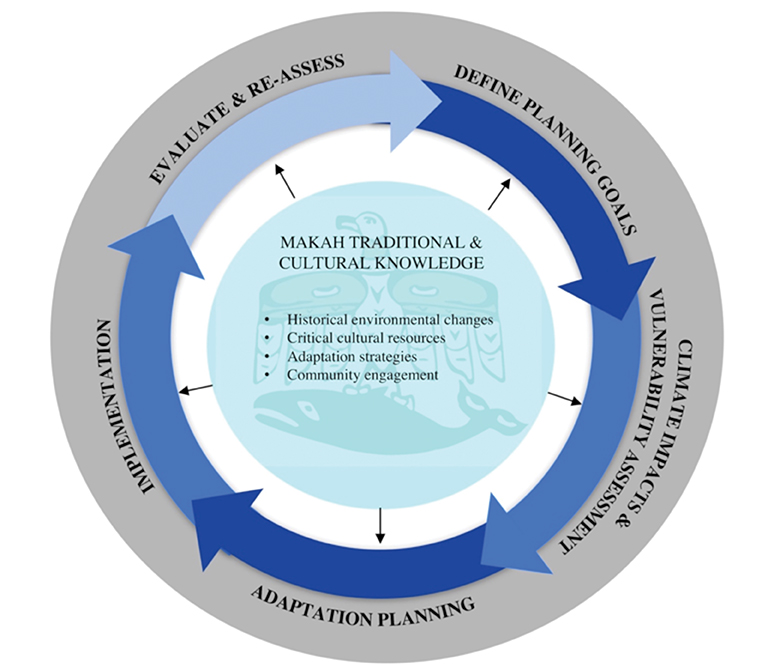
Figure 1. Makah’s framework to utilize traditional knowledge within climate change adaptation planning.
Below, we present a brief summary of how other Indigenous communities and researchers have utilized TK within climate adaptation and offer an example of how the Makah Tribe has applied these methods within our own process. Although we have created a preliminary framework on how the Makah Tribe has utilized TK, by no means is this the only framework for Indigenous communities to utilize TK within climate change planning. Each Indigenous community and person has their own right of self-determination and how best to use their own knowledges. This framework is only presented as an example of how the Makah Tribe and community have approached climate change adaptation through a community-based method, which could potentially serve as a template for other communities.
Establishing historical baselines. Though natural resource use is frequently higher in modern tribal communities compared with non-tribal communities, the rate of resource utilization is often higher under baseline conditions, or the state of the environment without current degradation and contamination (Harper et al. 2012). These baseline conditions should be the goal when conducting conservation, restoration, or developing environmental policy. It is not enough to restore to a recent baseline state, as that state’s environmental quality level has often deteriorated beyond the state needed by Indigenous groups for subsistence, cultural, and traditional practices. For many Indigenous groups, historical baselines are typically considered to be the precontact state of the environment and the availability and quality of resources at that time.
For tribes in the Pacific Northwest, including the Makah, the use of historical baselines is particularly relevant when considering policies, adaptation strategies, or restoration projects that address the access to fish, shellfish, or their habitat. Many tribes’ “heritage rate,” or the precontact traditional fish consumption rate of Indigenous communities (EPA 2016), has been suppressed by lack of fish availability, habitat contamination, or a combination of both. This heritage rate should be used when setting water quality goals so that natural resources are protected, as required by treaties signed by tribes with the US Government (Donatuto and Harper 2008).
Anthropological and ethnographic approaches often inform heritage rates, which illuminate nutritional, ecological, and biomedical information under historical environmental conditions (Donatuto and Harper 2008). Additionally, heritage rates and understanding traditional tribal subsistence lifestyles can increase understanding of the different environmental exposure risks of tribes and Indigenous peoples based on ecoregion conditions (Harper et al. 2007). A number of studies have shown how TK and local ecological knowledge (LEK) can inform historical baselines (Drew 2005; Eckert et al. 2017). Eckert et al. (2017) worked in collaboration with First Nations of British Columbia to utilize TEK and LEK to understand historical body size and abundance of yelloweye rockfish and its recent population decline, and to inform restoration targets. The Makah Tribe and MCRC have worked extensively to determine historic and current heritage rates of traditional subsistence resources (Sepez 2001, 2008). Additionally, MCRC has worked on defining and gathering information on the Ozette Tribal Cultural Landscape, an area of historical and cultural importance for the Makah Tribe, to establish historical uses, baselines, and changes within the cultural landscape area (Ball et al. 2017). Though climate adaptation planning recognizes that restoration to historical baselines is challenging, knowing the baselines elevates goal setting and provides a deeper understanding of the changes that have already occurred.
Critical cultural resources. For many non-Indigenous assessments and planning processes, identifying critical and vulnerable resources is often conducted through a WS lens (Cochran et al. 2013; Norton-Smith et al. 2016). For many Indigenous communities, the notion of prioritizing certain species or resources over others directly conflicts with their holistic worldview that everything within the natural world is interrelated and important. Thus, when prioritizing or identifying critical and vulnerable resources, it is important to engage and account for Indigenous cultural values within the planning process (Cochran et al. 2013; Lynn et al. 2013). For example, a climate vulnerability assessment for the Quinault Indian Nation, the Quileute Tribe, and the Hoh Tribe accounted for the cultural importance of species and resources (Dalton et al. 2016). The Confederated Tribes of the Umatilla Indian Reservation utilized a “First Foods” framework in their climate vulnerability assessment by identifying critical food resources and evaluating how climate impacts on these food resources may alter their culture, spirituality, identity, and cultural activities (CTUIR 2015). The Karuk Tribe found that not only resources will be impacted by climate change, but traditional gender roles, relationships, and cultural activities will also alter (Norgaard et al. 2017).
For the Makah Tribe, the 2017 community surveys provided space for community members to write a list of climate change concerns. Impacts on fishing, fish, the ocean, weather, and shellfish were the most frequent concerns listed by community members (Figure 2). Previous survey work conducted by researchers and MCRC between 1997 and 1999 also identified over 80 species that were important for cultural and subsistence use, with a majority of these species being marine resources (Sepez 2001). For present-day Makah, these subsistence activities provide nutrition, help maintain connections to place and traditions, and contribute to tribal identity and wellbeing, as evidenced by our 2018 TK interviews and archival quotes respectively.
Being on the water—I have to be. There is nothing like it. The water draws me to it. The ocean draws me to it, and I just need to be out there.
- Makah commercial and subsistence fisherman, 49 years old
Many of our tribe members feel that our health problems result from loss of our traditional sea food and sea mammal diet.
- Keith Johnson, from A Whale Hunt by Robert Sullivan, p. 13
(INSERT FIGURE 2 AND CAPTION HERE)
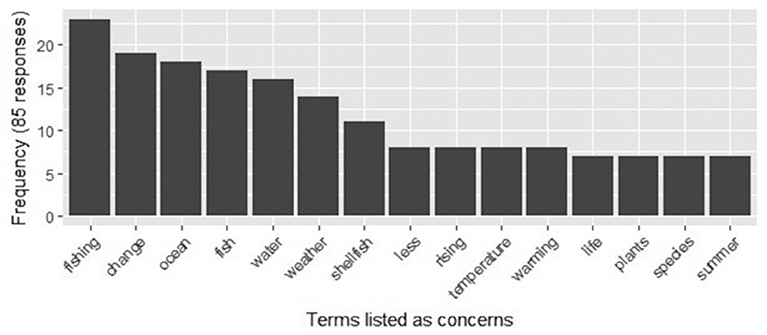
There has been strong continuity in the use of traditional species: 56% of species identified in the archaeological excavations of Ozette middens, dated to 1500 AD, are still used, including 87% of fish taxa and 84% of shellfish taxa (Sepez 2008). The identification of specific cultural resources from the 2018 TK interviews, 2017 community surveys, and archaeological and archived research at MCRC has directly informed the MCCWG climate change planning process.
Culturally relevant climate adaptation and mitigation strategies. TK can enhance community resilience by facilitating identification of culturally and socially relevant adaptation and mitigation strategies that WS-based assessments may miss, and address risks that extend beyond biophysical impacts (Lefale 2008; Donatuto et al. 2014; Reid et al. 2014; Pearce et al. 2015). Incorporating TK not only provides a more complete suite of resilience-enhancing adaptation strategies but is also “an ethical framework” for guiding climate adaptation (Cochran et al. 2013). Indigenous communities have emphasized that TK, culture, and sovereignty are themselves sources of resilience, which enhance a community’s capacity to adapt to environmental change (Colombi 2012; Pearce et al. 2015).
Many Indigenous communities have used TK to identify strategies that enhance community resilience. For example, the Swinomish Tribe of western Washington has developed Indigenous health indicators as part of their climate change adaptation process, concluding that Swinomish health and resilience are negatively impacted by degradation of archaeological sites and shellfish resources, which are associated with cultural foods and practices (Donatuto et al. 2014). The Swinomish Tribe and Canadian First Nations are now reintroducing clam gardens, a traditional maricultural practice to ensure continued access to traditional food and harvest practices (Augustine and Dearden 2014). Other examples of TK-based resilience strategies include: Karuk fishermen taking on new roles as activists and fishery managers to retain community identity in the face of declining fish populations (Norgaard et al. 2018); Nimiipuu fisheries managers who try to “think like the salmon” to protect their cultural keystone species (Colombi 2012); Gitga’at Nation’s focus on intergenerational cultural knowledge transfer (Reid et al. 2014); and the use of fishermen’s knowledge of hydrometeorological processes to enhance preparedness for coastal risks in the Yucatan (Audefroy and Cabrera Sanchez 2017).
The incorporation of Makah TK into climate change adaptation planning has enhanced the MCCWG’s ability to identify important resilience-building strategies. While WS-based strategies to reduce erosion, capture rainwater, and diversify fisheries are important for the tribe, they alone could not capture the TK-based strategies identified in the 2018 TK interviews. Interviewees highlighted the importance of traditional foods (for consumption and the practice of harvesting them), as well as social and cultural engagement within the community as important to maintaining community wellbeing and building resilience to climate change. While many interviewees were aware of red tides, warming water temperatures, and shifting distribution and abundance of traditional species, incorporating TK directly ties these biophysical impacts to family and community events, transferring and sharing cultural knowledge, and the physical and emotional challenges of having to travel much further to harvest, hunt, and gather. Because of this valuable knowledge, the Makah Tribe’s planning outputs will also include strategies that support learning about traditional and cultural foods in the local school, facilitate the sharing of harvest methods and food preparation intergenerationally and across the community, create access to fresh produce and traditional plants, and emphasize community events and social interaction as methods for increasing the tribe’s resilience to climate change.
Community engagement. For the Makah Tribe, community engagement was important in the climate planning process for three main reasons: to be able to connect with the community in a culturally relevant manner, provide space for the community members to have robust agency within the planning process, and ensure that the community supported committing resources to this effort.
When engaging with Indigenous communities, using language, statistics, scenarios, and models rooted in Western perspectives of climate science can often alienate the community, as communication styles and values often differ between WS and Indigenous science (Pearce et al. 2009). Refocusing conversations on people’s emotions and daily activities and life is a more effective means of engaging people on climate change issues (O’Neill and Nicholson-Cole 2009). For Indigenous communities, reframing climate change science and impacts into cultural stories, traditions, and activities can engage and communicate with community members in a relatable and culturally relevant method (Pearce et al. 2009; Golden et al. 2015). For the MCWWG, the most effective way of framing climate change impacts and scenarios was from the perspective of impacts to cultural activities and subsistence resources.
It is important to reframe climate science and climate impacts in a culturally relevant manner because proper and robust community engagement can build a community’s agency within the planning process (Norton-Smith et al. 2016). This engagement will ensure that the planning process is culturally appropriate and rooted in local values and lead to an increase of community “buy-in” and ownership of any climate adaptation strategies that result from the planning process (Sheppard et al. 2011; Adger et al. 2013; Reid et al. 201). The MCCWG found that over 80% of the Makah community supported some level of climate preparation (Figure 3). The 2017 and 2018 community events not only provided an opportunity for community members to engage within the climate planning process, it also reinforced that the Makah Tribal Council and tribal departments should be concerned and planning for climate change impacts.

Conclusion
Though there are many methods of utilizing TK within climate change planning, it is often crucial to approach these in a decolonized and non-extractive manner that empowers and respects the sovereignty and self-determination of the Indigenous community (UNDRIP 2008). Climate change has already and will continue to impact the Makah Tribe’s economic, ecological, social, cultural, and built resources. In the context of the Makah Tribe’s climate change planning process, it was crucial that the process was tribally led and inclusive of all tribal departments and the community’s perspective. Complementing WS with TK has been demonstrated time and again to create more effective, culturally relevant, and long-term strategies to increase community resilience to climate change.
It is also important to acknowledge that climate adaptation and climate change impacts are a product and an amplification of historical colonial policies imposed on Indigenous peoples (Whyte 2017). The colonial marginalization of Indigenous peoples in the United States and across the world has meant that these communities sometimes have less adaptive capacity in the form of ecological, financial, and human resources to address the challenges of climate change (Wildcat 2013; Chisholm Hatfield et al. 2018). In presenting this work, the Makah Tribe and the MCCWG hope to provide an example of how Indigenous groups can opportunistically utilize community events, previous research, archives, and their own staff to enhance their own resilience to climate change.
Michael Chang, Makah Fisheries Management
Haley Kennard, Makah Office of Marine Affairs
Laura Nelson, Makah Office of Marine Affairs
Contributors:
Katie Wrubel, Makah Fisheries Management
Seraphina Gagnon, Makah Fisheries Management
Rebekah Monette, Makah Cultural Research Center
Janine Ledford, Makah Cultural Research Center
Corresponding author:
Michael Chang
Makah Fisheries Management
150 Resort Dr.
Neah Bay, WA 98357 USA
m.hsu.chang@gmail.com
References
Adger, W. Neil, Jon Barnett, Katrina Brown, Nadine Marshall, and Karen O’Brien. 2013. Cultural dimensions of climate change impacts and adaptation. Nature Climate Change 3(2): 112–117. doi:10.1038/nclimate1666.
Agrawal, Arun. 1995. Dismantling the divide between Indigenous and scientific knowledge. Development and Change 26(3): 413–439. doi:10.1111/j.1467-7660.1995.tb00560.x.
Audefroy, Joel F., and B. Nelly Cabrera Sánchez. 2017. Integrating local knowledge for climate change adaptation in Yucatán, Mexico. International Journal of Sustainable Built Environment 6(1): 228–237. doi:10.1016/j.ijsbe.2017.03.007.
Augustine, Skye, and Philip Dearden. 2014. Changing paradigms in marine and coastal conservation: A case study of clam gardens in the Southern Gulf Islands, Canada. The Canadian Geographer / Le Géographe Canadien 58(3): 305–314. doi:10.1111/cag.12084.
Ball, David, Rosie Clayburn, Roberta Cordero, Briece Edwards, Valerie Grussing, Janine Ledford, Robert McConnell, Rebekah Monette, Robert Steelquist, Eirik Thorsgard, and Jon Townsend. 2017. Characterizing Tribal Cultural Landscapes, Volume II: Tribal Case Studies. OCS Study BOEM 2017-001. Camarillo, CA: US Department of the Interior, Bureau of Ocean Energy Management.
Bennett, T.M. Bull, Nancy G. Maynard, Patricia Cochran, Robert Gough, Kathy Lynn, Julie Maldonado, Garrit Voggesser, and Susan Wotkyns. 2014. Indigenous peoples, land, and resources. In Climate Change Impacts in the United States: The Third National Climate Assessment. Jerry Melillo, Terese Richmond, and Gary Yohe, eds. Washington, DC: US Global Change Research Program, 297–317. doi:10.7930/J09G5JR1.On.
Berkes, F. 1999. Sacred Ecology: Traditional Ecological Knowledge and Resource Management. New York: Routledge.
Berkes, Fikret, Johan Colding, and Carl Folke. 2000. Rediscovery of traditional ecological knowledge as adaptive management. Ecological Applications 1 (5): 1251–1262. doi:10.1890/1051-0761(2000)010[1251:ROTEKA]2.0.CO;2.
Bravo, Michael T. 2009. Voices from the sea ice: The reception of climate impact narratives. Journal of Historical Geography 35(2): 256–278. doi:https://doi.org/10.1016/j.jhg.2008.09.007.
Chang, Michael H., Laura Nelson, Forrest Howk, Zak Greene, Liliana Bastian, Haley Kennard, Katie Wrubel, and Adrianne Akmajian. 2018. Assessment of Climate Change Impacts for the Makah Tribe. Neah Bay, WA: N.p.
Chisholm Hatfield, Samantha, Elizabeth Marino, Kyle Powys Whyte, Kathie D. Dello, and Philip W. Mote. 2018. Indian time: Time, seasonality, and culture in traditional ecological knowledge of climate change. Ecological Processes 7(1). doi:10.1186/s13717-018-0136-6.
Cochran, Patricia, Orville H. Huntington, Caleb Pungowiyi, Stanley Tom, F. Stuart Chapin, Henry P. Huntington, Nancy G. Maynard, and Sarah F. Trainor. 2013. Indigenous frameworks for observing and responding to climate change in Alaska. Climatic Change 120: 557–567. doi:10.1007/978-3-319-05266-3_5.
Colombi, Benedict J. 2012. Salmon and the adaptive capacity of Nimiipuu (Nez Perce) culture to cope with change. American Indian Quarterly 35(1): 75–97. doi:10.5250/amerindiquar.36.1.0075.
Condon, Richard G., and Julia Ogiua. 1996. The Northern Copper Inuit: A History. Civilization of the American Indian Series vol. 220. Norman: University of Oklahoma Press.
CTUIR [Confederated Tribes of the Umatilla Indian Reservation]. 2015. Climate Change Vulnerability Assessment. http://www.ctuir.org. Accessed September 12, 2018.
Dalton, Meghan, Samantha Chisholm-Hatfield, Katie Krueger, and Matthew Conlin. 2016. Climate Change Vulnerability Assessment for the Treaty of Olympia Tribes. La Push. WA: N.p.
Donatuto, Jamie, Larry Campbell, and Robin Gregory. 2016. Developing responsive indicators of Indigenous community health. International Journal of Environmental Research and Public Health 13(9). doi:10.3390/ijerph13090899.
Donatuto, Jamie, Eric E. Grossman, John Konovsky, Sarah Grossman, and Larry W. Campbell. 2014. Indigenous community health and climate change: Integrating biophysical and social science indicators. Coastal Management 42(4): 355–373. doi:10.1080/08920753.2014.923140.
Donatuto, Jamie, and Barbara L. Harper. 2008. Issues in evaluating fish consumption rates for Native American tribes. Risk Analysis 28(6): 1497–1506. doi:10.1111/j.1539-6924.2008.01113.x.
Drew, Joshua A. 2005. Use of traditional ecological knowledge in marine conservation. Conservation Biology 19(4): 1286–1293. doi:10.1111/j.1523-1739.2005.00158.x.
Eckert, Lauren E., Natalie C. Ban, Alejandro Frid, and Madeleine McGreer. 2017. Diving back in time: extending historical baselines for yelloweye rockfish with Indigenous knowledge. Aquatic Conservation: Marine and Freshwater Ecosystems 28(1): 158–166. doi:10.1002/aqc.2834.
EPA [US Environmental Protection Agency]. 2016. Guidance for Conducting Fish Consumption Surveys. EPA 823-B-16-002. Washington DC: EPA, Office of Water.
Finn, Symma, Mose Herne, and Dorothy Castille. 2017. The value of traditional ecological knowledge for the environmental health sciences and biomedical research. Environmental Health Perspectives (October): 1–9.
Gadamus, Lily, Julie Raymond-Yakoubian, Roy Ashenfelter, Austin Ahmasuk, Vera Metcalf, and George Noongwook. 2015. Building an Indigenous evidence-base for tribally-led habitat conservation policies. Marine Policy 62: 116–124. doi:10.1016/j.marpol.2015.09.008.
Glaser, Barney, G., and Anselm L. Strauss. 1967. The Discovery of Grounded Theory: Strategies for Qualitative Research. Chicago: Aldine.
Golden, Denise M., Carol Audet, and M.A.(Peggy) Smith. 2015. ‘Blue-ice’: Framing climate change and reframing climate change adaptation from the Indigenous peoples’ perspective in the northern boreal forest of Ontario, Canada. Climate and Development 7(5): 401–413. doi:10.1080/17565529.2014.966048.
Gómez-Baggethun, E., E. Corbera, and V. Reyes-García. 2013. Traditional ecological knowledge and global environmental change: Research findings and policy implications. Ecology and Society 18(4): 72. doi:10.5751/ES-06288-180472.
Harper, Barbara L., A.K. Harding, Therese Waterhous, and S.G. Harris. 2007. Traditional Tribal Subsistence Exposure Scenario and Risk Assessment Guidance Manual. Corvallis: Oregon State University Publishing and Mailing.
Harper, Barbara, Anna Harding, Stuart Harris, and Patricia Berger. 2012. Subsistence exposure scenarios for tribal applications. Human and Ecological Risk Assessment 18(4): 810–831. doi:10.1080/10807039.2012.688706.
Huntington, Henry P. 1998. Observations on the utility of the semi-directive interview for documenting traditional ecological knowledge. Arctic 51(3): 237–242. http://www.jstor.org/stable/40512135.
IPCC [Intergovernmental Panel on Climate Change]. 2007. Contribution of Working Group II to the Fourth Assessment Report of the Intergovernmental Panel on Climate Change. Accessed September 12, 2018. http://www.ipcc.ch/pdf/glossary/ar4-wg2.pdf.
ISE [International Society of Ethnobiology]. 2006. International Society of Ethnobiology Code of Ethics (with 2008 additions). http://ethnobiology.net/code-of-ethics/. Accessed September 17, 2018.
Lefale, Penehuro Fatu. 2010. Ua ’afa Le Aso stormy weather today: Traditional ecological knowledge of weather and climate. The Samoa experience. Climatic Change 100(2): 317–335. doi:10.1007/s10584-009-9722-z.
Lynn, Kathy, John Daigle, Jennie Hoffman, Frank Lake, Natalie Michelle, Darren Ranco, Carson Viles, Garrit Voggesser, and Paul Williams. 2013. The impacts of climate change on tribal traditional foods. Climatic Change 120(3): 545–556. doi:10.1007/s10584-013-0736-1.
Noongwook, George, The Native Village of Savoonga, The Native Village of Gambell, Henry P. Huntington, and John C. George. 2007. Traditional knowledge of the bowhead whale (Balaena mysticetus) around St. Lawrence Island, Alaska. Arctic 60(1): 47–54. http://www.jstor.org/stable/40513157.
Norgaard, Kari Marie, Ron Reed, and J.M. Bacon. 2017. How environmental decline restructures Indigenous gender practices: What happens to Karuk masculinity when there are no fish? Sociology of Race and Ethnicity, 233264921770651. doi:10.1177/2332649217706518.
Norton-Smith, Kathryn, Kathy Lynn, Karletta Chief, Karen Cozzetto, Jamie Donatuto, M. Redsteer, Linda Kruger, Julie Maldonado, Carson Viles, and Kyle Whyte. 2016. Climate Change and Indigenous Peoples: A Synthesis of Current Impacts and Experiences. General Technical Report PNW-GTR-944. Portland, OR: US Department of Agriculture–Forest Service, Pacific Northwest Research Station.
O’Neill, Saffron, and Sophie Nicholson-Cole. 2009. ‘Fear Won’t Do It’ visual and iconic representations. Science Communication 30(3): 355–379. doi:10.1177/1075547008329201.
Oskal, Anders, Johan Mathis Turi, Svein D. Mathiesen, and Philip Burgess. 2009. EALÁT. Reindeer Herders Voice: Reindeer Herding, Traditional Knowledge and Adaptation to Climate Change and Loss of Grazing Lands. Kautokeino/Guovdageadnu, Norway: International Centre for Reindeer Husbandry.
Pachauri, R.K., and L.A. Meyer. 2014. IPCC, 2014: Climate Change 2014: Synthesis Report. Contribution of Working Groups I, II and III to the Fifth Assessment Report of the Intergovernmental Panel on Climate Change. Geneva: IPCC.
Pearce, Tristan, James Ford, Ashlee Cunsolo Willox, and Barry Smit. 2015. Inuit traditional ecological knowledge (TEK) subsistence hunting and adaptation to climate change in the Canadian Arctic. Arctic 68(2): 233–245. doi:10.14430/arctic4475.
Pearce, Tristan D., James D. Ford, Gita J. Laidler, Barry Smit, Frank Duerden, Mishak Allarut, Mark Andrachuk, et al. 2009. Community collaboration and climate change research in the Canadian Arctic. Polar Research 28(1): 10–27. doi:10.1111/j.1751-8369.2008.00094.x.
Prusak, S. Yvonne, Ryan Walker, and Robert Innes. 2015. Toward Indigenous planning? First Nation community planning in Saskatchewan, Canada. Journal of Planning Education and Research 36(4): 440–450. doi:10.1177/0739456X15621147.
Reid, Michael G., Colleen Hamilton, Sarah K. Reid, William Trousdale, Cam Hill, Nancy Turner, Chris R. Picard, Cassandra Lamontagne, and H. Damon Matthews. 2014. Indigenous climate change adaptation planning using a values-focused approach: A case study with the Gitga’at Nation. Journal of Ethnobiology 34(3): 401–424. doi:10.2993/0278-0771-34.3.401.
Sepez, Jennifer. 2001. Political and social ecology of contemporary Makah hunting, fishing, and shellfish collecting practices. PhD dissertation, University of Washington.
Sepez, Jennifer. 2008. Historical ecology of Makah subsistence foraging patterns. Journal of Ethnobiology 28(1): 110–133. doi:10.2993/0278-0771(2008)28[110:HEOMSF]2.0.CO;2.
Sheppard, Stephen R.J., Alison Shaw, David Flanders, Sarah Burch, Arnim Wiek, Jeff Carmichael, John Robinson, and Stewart Cohen. 2011. Future visioning of local climate change: A framework for community engagement and planning with scenarios and visualisation. Futures 43(4): 400–412. doi:10.1016/j.futures.2011.01.009.
Smith, Linda T. 1999. Decolonizing Methodologies: Research and Indigenous Peoples. London: Zed.
Stevenson, Marc G. 1996. Indigenous knowledge in environmental assessment. Arctic 49(3): 278–291. doi:10.2307/40512004.
Sullivan, Robert. 2000. A Whale Hunt. New York: Scribner.
Takano, Takako. 2005. Connections with the land: Land-skills courses in Igloolik, Nunavut. Ethnography 6(4): 463–486. http://www.jstor.org/stable/24047868.
United Nations. 2008. United Nations Declaration on the Rights of Indigenous Peoples (UNDRIP). https://www.un.org/esa/socdev/unpfii/documents/DRIPS_en.pdf. Accessed September 12, 2008.
Usher, Peter J. 2000. Traditional ecological knowledge in environmental assessment and management. Arctic 53(2): 183–193. doi:10.14430/arctic849.
Walker, Ryan, Ted Jojola, and David Natcher. 2013. Reclaiming Indigenous Planning. Montreal: McGill-Queen’s Press.
Whyte, Kyle. 2017. Indigenous climate change studies: Indigenizing futures, decolonizing the Anthropocene. English Language Notes 55(1–2): 153–162.
Wildcat, Daniel R. 2013. Introduction: Climate change and Indigenous peoples of the USA. Climatic Change 120(3): 509–515. doi:10.1007/s10584-013-0849-6.
